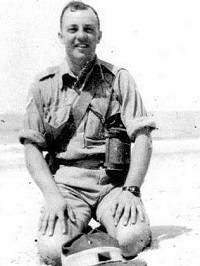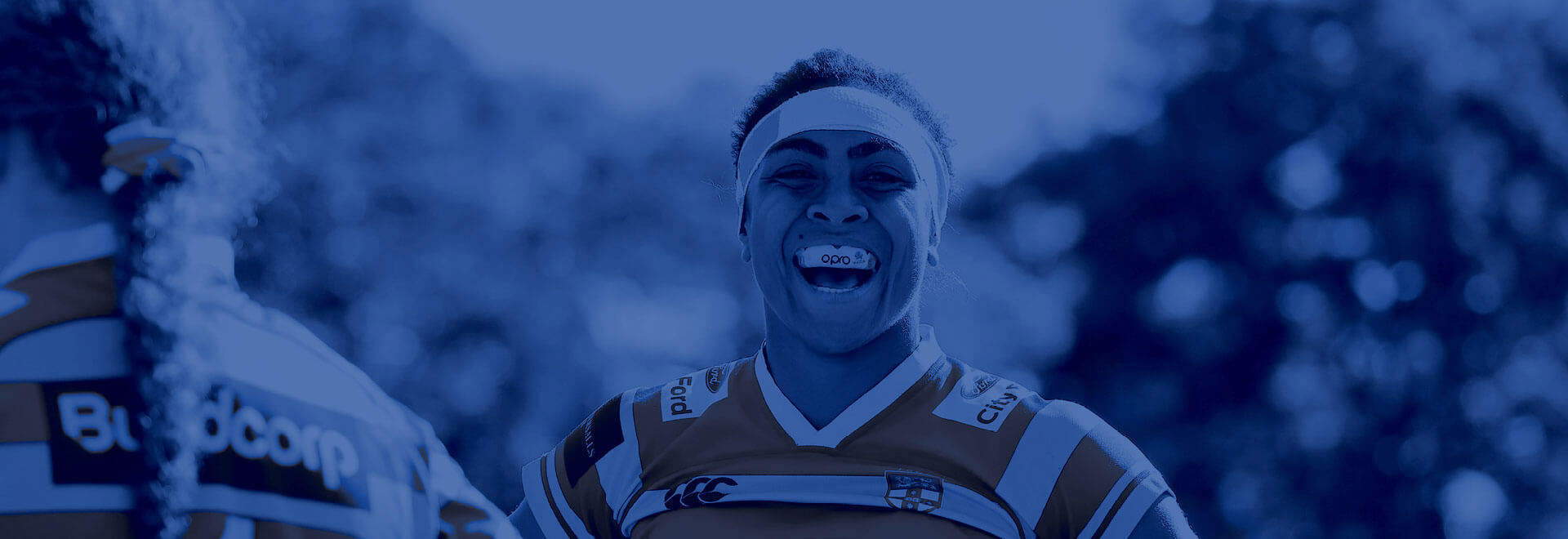SURVIVING war takes mountains of courage, unbreakable mateship and a smile from lady luck.
Waratah and Wallaby half-back Nick Phipps understands that much. He exists because of all three.
Phipps will pause before NSW’s match with Melbourne on Anzac Day and his mind will turn to his two grandfathers, Jim and Ronnie, whose tales of survival in World War Two ensured he’d one day come into the world.
The astounding part of their stories, however, is that they are shared. Phipps’ grandfathers amazingly survived the war together; fighting side-by-side and enduring a POW camp decades before their children would meet randomly, get married and give birth to a future Wallaby.
 “Everyone gets pretty blown away by it,” Phipps says.
“Everyone gets pretty blown away by it,” Phipps says.
The story begins with the Australian 3rd antitank regiment being deployed to North Africa in 1941. The 11th battery contained Phipps’ maternal grandfather Ronnie McIntosh (pictured left), a bush kid from Cunnamulla, and WJ (Jim) Phipps, a rugby-playing vet from Nowra.
They were put on the same gun in “G” troop and because Phipps, who’d played games for the Waratahs and Wallabies pre-war, was older he was made a captain. McIntosh was a young bombardier and the pair bonded.
“They were really tight. They organised the footy games between the regiment and other units,” Phipps said.
When the panzers of Rommell’s Afrika Korp began sweeping across Egypt, things grew bleak for the allies. Most withdrew to Tobruk but some were ordered to stay behind to slow Rommell up at Mechili. “G” troop stayed and amazingly, another Wallaby Russ Kelly, was also on the same antitank gun as Phipps and McIntosh.
“All the German tanks had to go through this empty wadi, and though their guns weren’t the best, but they killed six tanks through their side,” Phipps said.
“A tank came up on their position and fired on them. Ronnie was injured, Kelly was wounded, Jim was all right. Ronnie ended up getting a medal, he was injured but just kept fighting.”
One hundred allies were killed, wounded or captured. Kelly later died of his injuries but Phipps’ grandfathers were among the men taken to a POW camp in Germany. Together.
“It was four hard years in a prisoner of war camp in Germany, and later in Italy,” Phipps said.
“They escaped together as well. They found a boat and patched it up with shirts and stuff. They got about 80km away but got caught. They got pretty flogged I think when they were got taken back.”
Americans troops liberated their camp in 1945 and the pair separated. McIntosh returned to the land in Australia, and Phipps stayed behind to help with medical work.
Contact was minimal until about 30 years later when Ronnie’s daughter Janie fell in love with a young teacher in Sydney. It was Phipps’ son Peter.
“Mum and Dad met absolutely randomly,” Phipps said. “My grandparents obviously realised the connection, quite early on I think. It was a pretty amazing thing because they hadn’t seen each other for years and years and years.”
Phipps was born in 1989 and while he never had the chance to meet Jim, he had Ronnie for 15 “great” years. His respect for both men exploded in recent years when Phipps sought to learn more about their story.
“It’s just amazing the guts they had,” Phipps said.
“Imagine being those guys who were told “we want you to stay and slow them down”. You are cooked, you are being left behind by a couple of English generals … just try to comprehend that. But they were happy to do it to try and buy time for their mates. It’s unbelievable courage.”
Phipps is now 26, roughly the same age as the men who stared down Rommell. He gets to represent Australia in rugby and while he’ll always bust his gut, Phipps will never mistake his effort with true bravery.
“A lot of people take that (sporting) life for granted, I reckon. Complaining about minor stuff,” Phipps said.
“You put that in perspective with those guys then, our age, they were jumping to enlist and defend Australia.”
When the last post plays on Saturday night at ANZ Stadium, Phipps will think of Jim and Ronnie and give silent thanks for courage, mateship and luck.
“It is my first chance to play on Anzac Day so it is going to be very special,” he said.
“It is very special for Mum and Dad as well, knowing what their parents went through. It’s why we’re all here today.”

